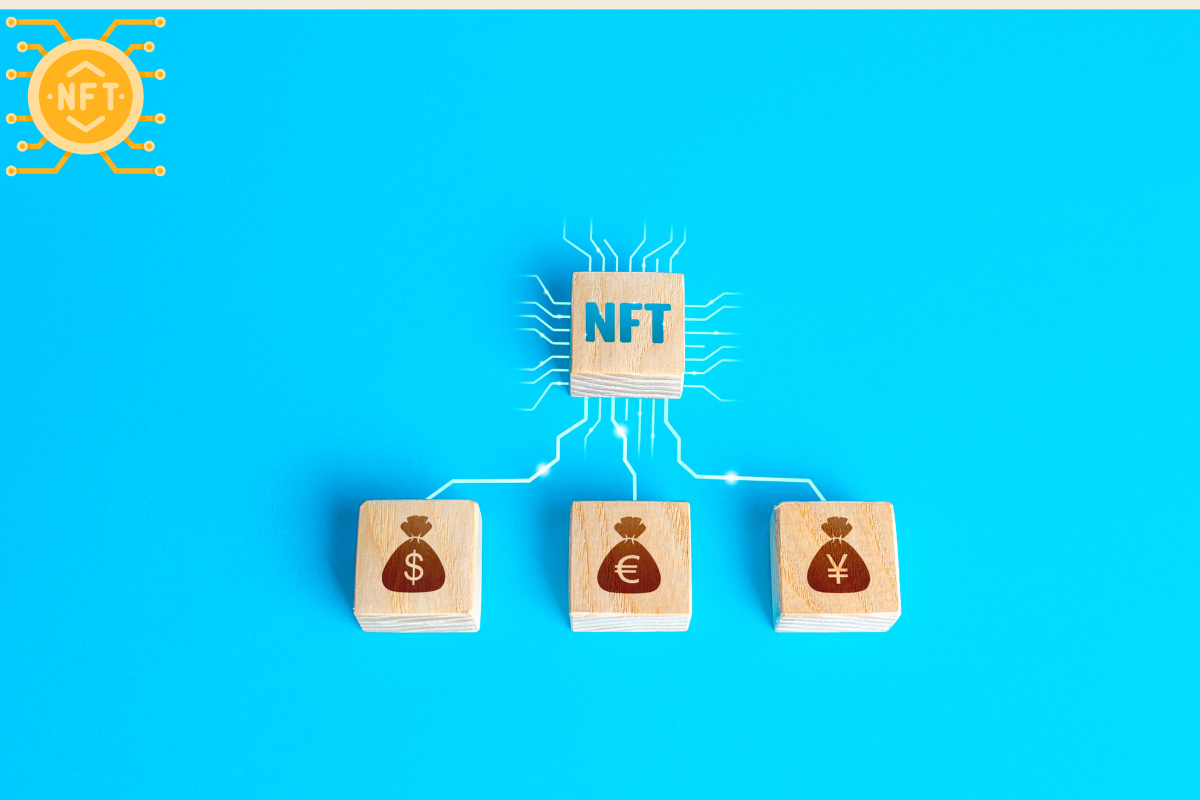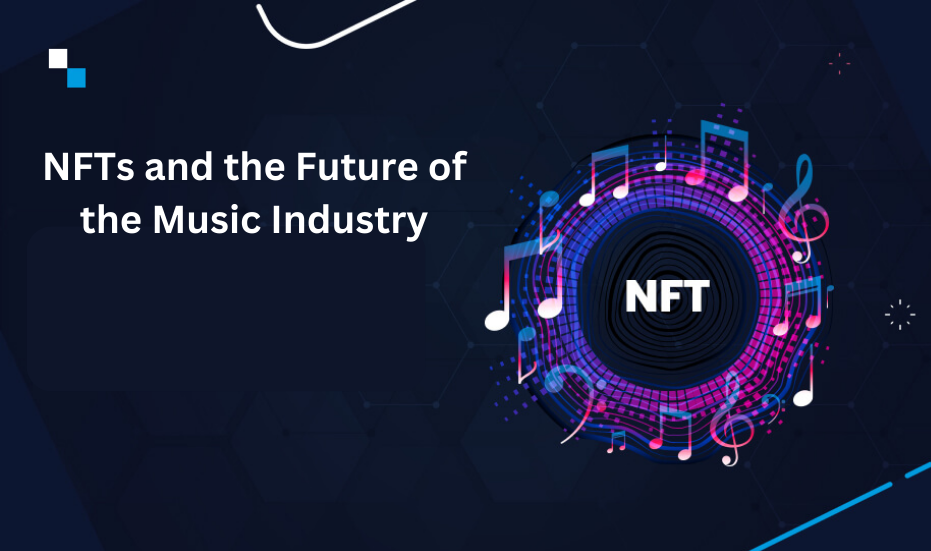The emergence of music non-fungible tokens (NFTs) has the potential to redefine the commercial landscape of the music industry. This innovative union of art and blockchain technology offers a novel pathway for artists and fans to engage deeply with each other while also turning their passion into tangible profit. As the industry grapples with evolving artist revenues and fan engagement models, music NFTs stand as a beacon of potential transformation.
Key takeaways
- Music NFTs provide a unique platform for artists to monetize their work directly.
- Fans gain exclusive ownership and access to unique content.
- The blockchain technology underlying NFTs ensures security, transparency, and authenticity.
An overview of the music industry and its challenges
The music industry has historically been fraught with challenges related to equitable revenue distribution, piracy, and accessibility for independent artists. Despite the advent of digital streaming platforms, many artists still find it difficult to derive a sustainable income from their music alone. Additionally, the digital era has intensified issues around content piracy and reduced the overall value of music as a commodity.
Introduction to NFTs and their impact on various industries
Non-fungible tokens (NFTs) have rapidly risen to prominence, powered by blockchain technology. Distinct from the fungible nature of traditional cryptocurrencies, NFTs represent unique digital assets that cannot be exchanged on a like-for-like basis. Their introduction to various industries, such as art, gaming, and collectibles, has demonstrated profound impacts on valuation, ownership, and the creator-fan dynamic, paving the way for their exciting introduction into the music sector.
What are Music NFTs?

An explanation of NFTs and their role in the music industry
Non-Fungible Tokens (NFTs) have transcended the realm of visual arts to play a pivotal role in transforming the music industry. At their core, NFTs are digital assets that are unique and cannot be replaced interchangeably, setting them apart from fungible tokens like cryptocurrencies.
This uniqueness is championed by blockchain technology, which ensures the authenticity and ownership of digital goods. In the music industry, NFTs have become a groundbreaking tool for artists to sell their work directly to fans without intermediaries. They can represent anything from exclusive songs, albums, and music videos to digital merchandise and VIP concert experiences, thereby redefining the value of music in the digital age.
Benefits of using NFTs for artists
For artists, the emergence of music NFTs heralds a new era of opportunities. Primarily, NFTs disrupt the traditional music distribution model, enabling artists to retain a greater share of their earnings by bypassing traditional gatekeepers like record labels and streaming platforms.
This direct-to-consumer model not only ensures higher profits but also grants artists complete creative control over their work. Additionally, NFTs facilitate an authentic engagement with the fanbase, as artists can offer exclusive content and experiences, fostering a stronger artist-fan connection.
How NFTs empower fans and provide unique experiences
From the perspective of fans, music NFTs represent a paradigm shift in how they interact with their favourite artists. Purchasing a music NFT not only means acquiring a unique piece of art, but also holding a stake in the artist’s success. This can range from exclusive access to new tracks or albums before they hit mainstream platforms to unique experiences like private concerts or meet-and-greets. Consequently, fans become more than passive listeners; they are active participants in the artist’s creative journey.
Empowering artists with music NFTs
Opportunities for artists to monetize their work through NFTs
Music NFTs unlock a spectrum of monetization opportunities for artists. Beyond selling digital tracks or albums, artists can mint NFTs for limited edition artworks, behind-the-scenes content, and even songwriting credits.
These diverse revenue streams not only empower artists financially, but also encourage creative explorations beyond music production. Moreover, NFTs can be programmed to automatically pay royalties to artists whenever they are resold, ensuring artists benefit from their work’s increasing value over time.
Case studies of successful artists leveraging NFTs
Several artists have notably harnessed the potential of NFTs to great success. Kings of Leon, for instance, made history by releasing their album as an NFT, which included exclusive perks like front-row concert seats for life.
Similarly, electronic musician and producer 3LAU sold an NFT collection for his album, grossing over $11 million. These cases underscore the profound impact of NFTs on providing artists with novel ways to connect with fans and monetize their talents.
Exploring the potential of royalties and secondary sales for artists
One of the most revolutionary aspects of music NFTs is their ability to generate continuous revenue through royalties from secondary sales. This means that every time an NFT is sold to a new owner, the original creator receives a percentage of the sale price.
This perpetual revenue stream could dramatically alter the financial landscape for artists, ensuring they reap benefits from their work long after the initial sale. This model not only provides a sustainable income for artists but also incentivizes them to create high-quality, sought-after content.
Enhancing fan engagement
The adoption of music NFTs is redefining artist-fan interactions, propelling the music industry into a new era of engagement and personal connection. Through these digital assets, artists can offer unique, unforgettable experiences and content, fostering deeper loyalty and connection among their fanbase.
Unique fan experiences enabled by music NFTs
NFTs of music unlock a plethora of possibilities for creating exclusive fan experiences. These range from unique digital merchandise and collectibles to access to unreleased tracks or special editions of songs.
Artists can also offer NFT holders the opportunity to attend virtual meet-and-greets or participate in decision-making processes about upcoming projects. Such initiatives not only enhance the value of owning a music NFT but also elevate the fan experience to new heights, making it more interactive and personal.
How do NFTs foster deeper connections between artists and fans?
NFTs serve as a bridge for more intimate interactions between musicians and their audience. By providing fans with something tangible and exclusive in the digital realm, NFTs create a sense of belonging and investment in an artist’s success.
Fans are no longer just passive listeners; they become active participants, contributing to and sharing in the achievements of their favourite artists. This dynamic shifts the traditional artist-fan relationship into a more collaborative and mutually beneficial partnership. Also read Crypto Exchanges To Skyrocket Your Portfolio in 2024.
Creating virtual events and exclusive content for NFT holders
Virtual events and exclusive digital content have become significant incentives for music NFT purchases. Owners might gain access to virtual concerts, behind-the-scenes footage, or limited-release music videos, offering a new dimension to digital ownership and fan engagement. These privileges not only incentivize fans to invest in NFTs but also echo the possibilities of blending technology with art to create immersive experiences.
NFTs and the Future of the Music Industry

As we delve deeper into the integration of NFTs within the music sector, it is clear that they have the potential to significantly transform the landscape of music production, distribution, and consumption.
The evolution of the music industry with the adoption of NFTs
The music industry is undergoing a transformation with the adoption of blockchain technology and NFTs. This evolution includes a shift towards more equitable revenue models for artists, who can now directly monetize their work without the need for intermediaries. NFTs also introduce new forms of artistic expression and fan engagement, allowing creators to break free from traditional music distribution constraints.
Predictions for the Future of Music NFTs
The future of music NFTs is poised for exponential growth as blockchain technology continues to evolve. We may see the emergence of standardized frameworks for creating, buying, and selling music NFTs, making them more accessible to artists and fans alike. Additionally, increased legal clarity around copyright and ownership issues could further bolster confidence in music NFTs as a legitimate and lucrative avenue for artists.
Potential challenges and considerations for artists and fans
Despite the promising future of music NFTs, there are challenges and considerations that both artists and fans must navigate. These include concerns over environmental impact due to the energy consumption of blockchain technology, potential market volatility, and ensuring digital ownership rights are clearly defined and protected. Artists will need to find a balance between exclusivity and accessibility to ensure that fan engagement remains high without alienating listeners unable to afford NFTs.
Conclusion
A recap of the transformative potential of music NFTs
Music NFTs hold unparalleled potential to revolutionize the music industry by transforming how music is created, shared, and valued. They offer artists a unique way to monetize their work directly and provide fans with a novel form of ownership and interaction, effectively turning passion into profit.
Encouraging artists and fans to explore the opportunities offered by NFTs
Artists and fans alike are urged to delve into the world of music NFTs. Beyond a passing trend, NFTs mark a substantial shift towards more equitable and innovative practices within the music industry. For artists, it’s an opportunity to gain greater control over their creations, and for fans, it’s a chance to directly support and connect with their favourite artists.
Closing thoughts on the future of the music industry and blockchain technology
The fusion of blockchain technology and the music industry promises a future where creative expression and fan engagement are prioritized. As we witness the budding relationship between these two realms evolve, it’s clear that music NFTs are not just reshaping the business model of music, but also setting the stage for a more inclusive and rewarding musical ecosystem.
Author
Syed Ali







